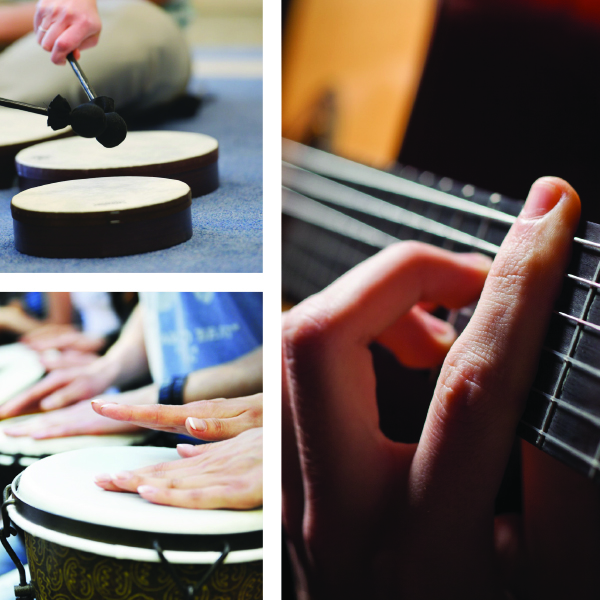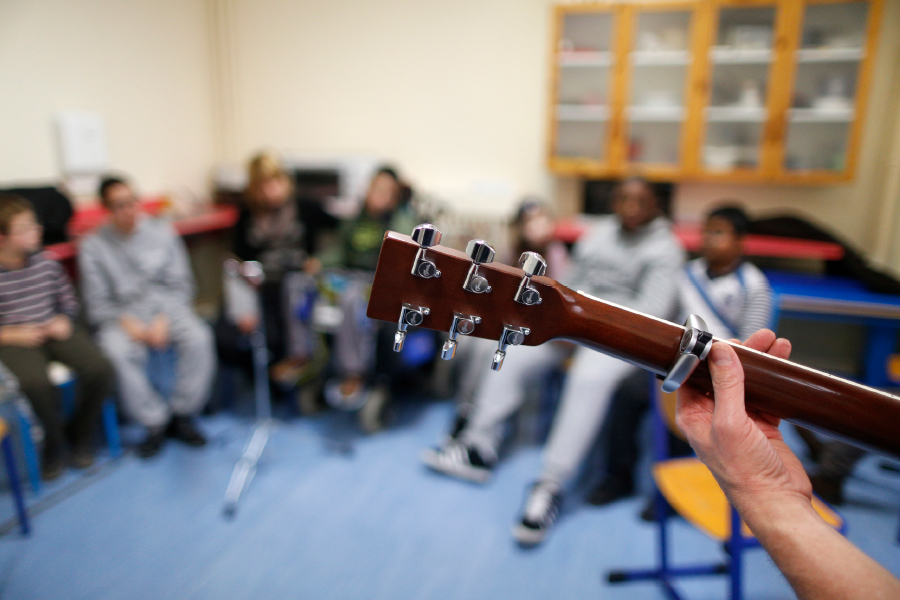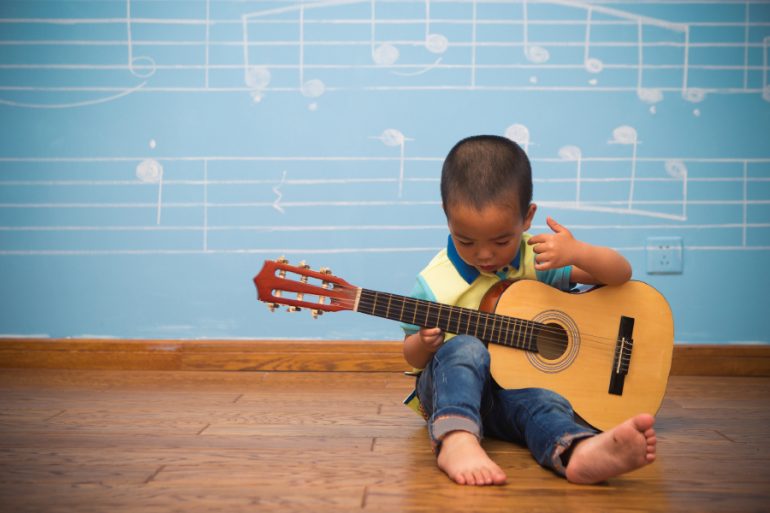Amy Di Nino still remembers the quiet and withdrawn 12-year-old girl who came to her for music therapy several years ago. She had a dual diagnosis of autism and vision impairment and struggled with sensory overload to the point where she would shut out the world. Di Nino used music therapy to help calm her and created a safe environment in which she could reconnect with the world.

Di Nino watched the girl blossom and said it was an “unbelievable” experience. “Music was this powerful medicine that I was able to provide for her in the way she needed it most,” notes Di Nino, who is a Neurological Music Therapist as well as conductor, educator and composer. Di Nino’s company ADD Music Wellness offers music therapy programming for babies, toddlers and children and specializes in the treatment of children with a wide range of diagnoses and/or special needs. They see around 30 children a week, in both individual and group music therapy sessions. She says music therapy is especially helpful for teaching children who have communication difficulties, because it provides them with a non-verbal way to communicate. It also helps children develop social skills, such as eye contact, and promotes emotional expression.
Music has long been recognized for its healing qualities but it can also help with brain development in infants and young children and even lead to moderate increases in IQ. Research by Laurel Trainor, professor of psychology and director of the McMaster Institute for Music and the Mind, showed that children age four or five who studied music for one year had more advanced EEG brain responses related to sound processing, memory and attention, in comparison to children engaged in other activities.
The power of music and the reason it is such an effective form of therapy lies in its ability to stimulate both sides of the brain. In doing so, it can improve sensorimotor functioning and overall growth in such areas as behaviour and social skills. Music therapy programs have proven effective with children who have autism, speech delays and developmental delays. But Di Nino says all children can benefit from it, not only those with special needs. “It’s not only an educational opportunity, but an enjoyable activity that provides structure and purpose in a child’s life,” says Di Nino, who offers classes in Burlington. Sessions include instrument play and/or instruction in piano, guitar, drums, hand percussion, educational concepts through music (colours, shapes, counting), singing/voice instruction, movement to music and music education.

Klaudia Music Studio in Oakville has been in the business of providing music therapy for 15 years and sees about 300 children a year. They offer lessons with 14 different teachers on various instruments, mostly piano. Owner Klaudia Thibault says while their program is not specifically for children with communication difficulties, they do see children with issues and most are able to overcome them with regular lessons. They offer individual lessons so students get undivided attention and can progress at their own speed.
The reason music is such an effective tool to help children, states Thibault, is because most students can learn to express themselves through music. “It’s a skill for life and not only for children. Adult students gain confidence and vent their anxieties through music,” says Thibault.
Di Nino says the response she’s seen from children who have come to her with challenges, like the 12-year-old girl she worked with, are what inspire her and keep her going. “It’s those kind of moments that make me incredibly grateful that this is how I give back to the world. I felt like I was making a small difference in the world, and particularly in her world.”
by Denise Davy
Local Links
ADD Music Wellness, Burlington
addmusicwellness.com
Klaudia Music Studio, Oakville
klaudiasmusicstudio.com
Music Therapy Ontario
musictherapyontario.com





